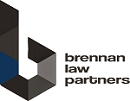Reportable Conduct Scheme: What you need to know
As of 1 July 2017, all schools in Victoria must comply with the Reportable Conduct Scheme requirements set out in the Child Wellbeing and Safety Act 2005 (Vic). Heavy penalties apply for failing to comply with the requirements so principals must ensure they are familiar with the scheme and their obligations under it.
The Reportable Conduct Scheme has been designed to ensure that the Commission for Children and Young People (CCYP) are aware of every allegation of certain types of misconduct by employees involving children. The Reportable Conduct Scheme requires heads of relevant organisations to:
- Have a system in place to prevent child abuse;
- Be able to identify reportable conduct when it arises;
- Ensure systems are in place, are known and are accessible for reporting allegations of misconduct;
- Promptly notify the CCYP of any allegations of misconduct;
- Report to and keep the CCYP updated with the investigations and response of the organisation into an allegation of misconduct.
The scheme, at its core, requires schools and school leaders to identify, investigate and report on reportable conduct.
|
If a principal of a school becomes aware of a reportable allegation against an employee of the school, they must notify CCYP within 3 business days. Notifications must be made using CCYP’s online notification form. Then, within 30 days of being made aware of the reportable allegations, the principal must notify (in writing) CCYP of:
When an allegation of reportable conduct is brought to the attention of a principal, the principal should move quickly to determine the course of the investigation, including who it is to be conducted by. Indeed, the CCYP will need to be advised of the investigator when reporting the incident. Schools are able to conduct the investigation internally or appoint an external investigator. As with all investigations, they must be conducted promptly, fairly and in accordance with the principles of natural justice. If a principal decides to appoint an external/independent investigator, they should ensure that they maintain appropriate qualifications, training and experience. The Private Security Act 2004 (Vic) permits only licenced persons (or lawyers) to act as investigators. When deciding whether to conduct an investigation internally or engage an independent investigator, regard should be had to the following factors:
|







